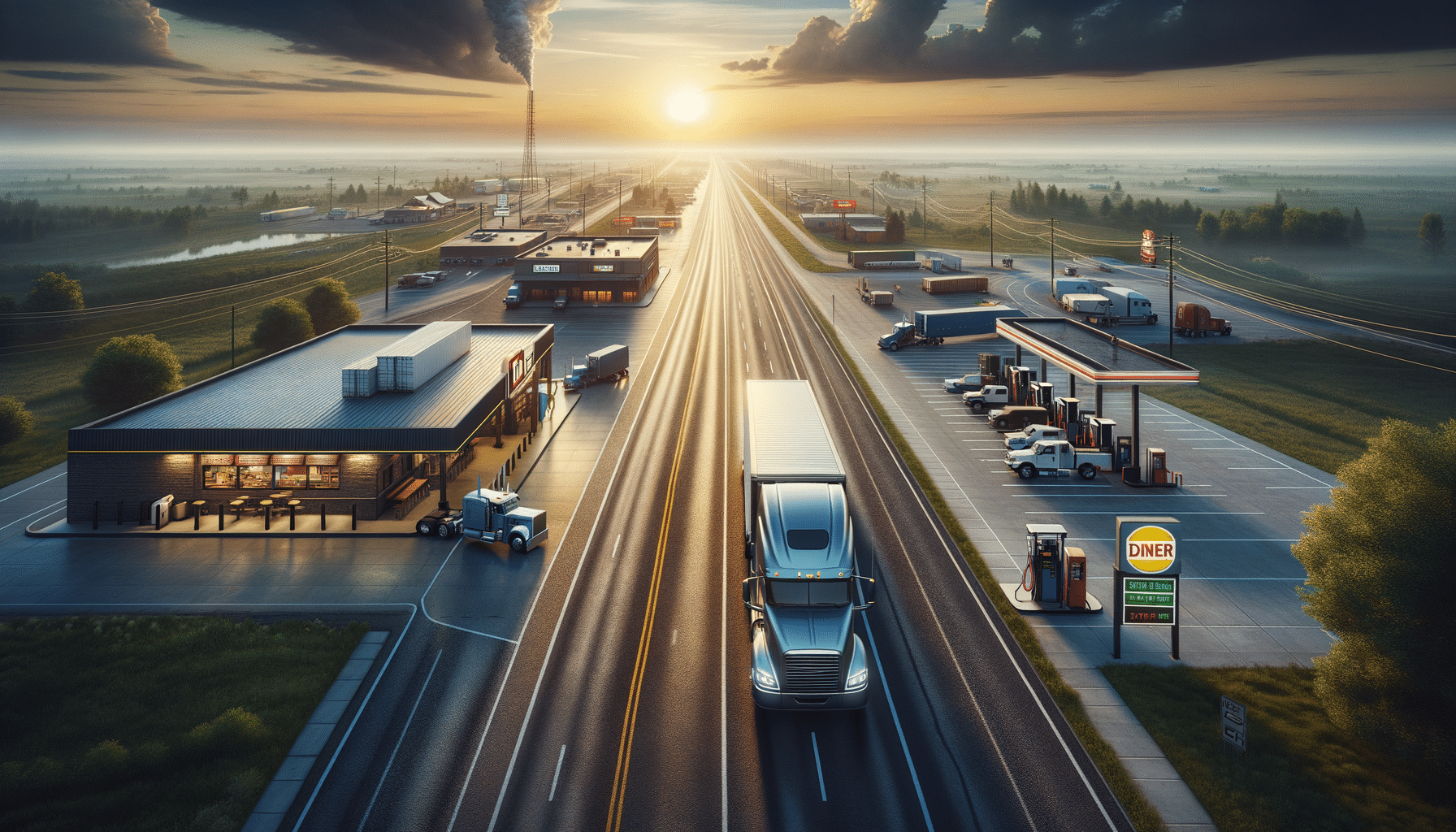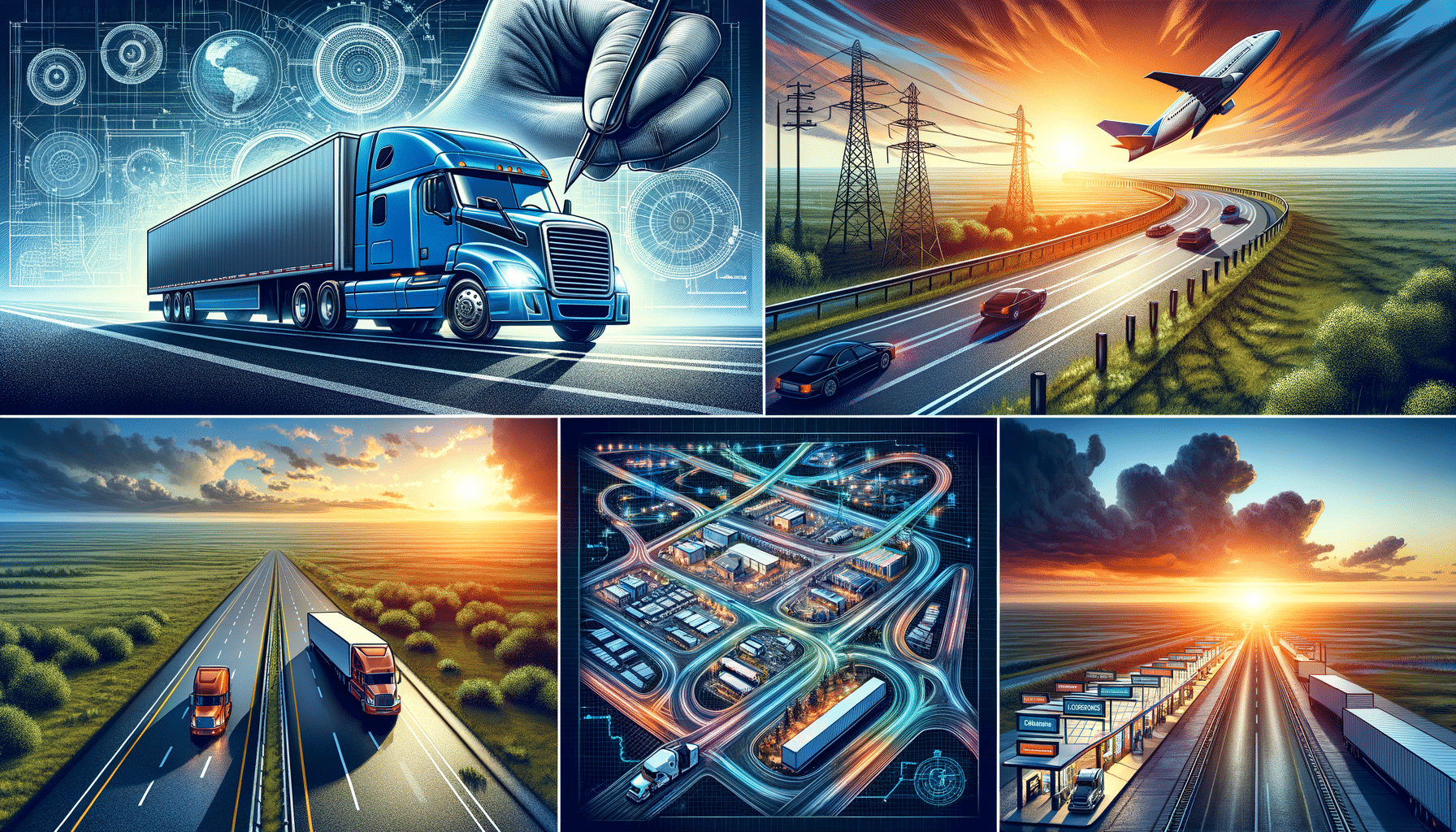
Amazing Life Of A Truck Driver
The Role of a Truck Driver in Modern Society
Truck drivers are the backbone of the logistics and transportation industry, playing a crucial role in modern society. They ensure the smooth movement of goods across vast distances, supporting the economy and providing the necessary supplies for businesses and consumers. Without truck drivers, the supply chain would face significant disruptions, affecting everything from grocery store shelves to industrial production lines.
Truck drivers are responsible for transporting a wide range of goods, including food, clothing, electronics, and raw materials. They connect producers with consumers, facilitating commerce and trade. Their role is not just limited to driving; they also handle loading and unloading, ensure the safety of the cargo, and maintain compliance with transportation regulations. This multifaceted job requires a high level of skill and dedication.
Moreover, truck drivers contribute to the economy by creating jobs and supporting related industries such as vehicle manufacturing, maintenance, and logistics services. They also play a critical role during emergencies, delivering essential supplies and relief materials to affected areas. In essence, truck drivers are essential to the functioning of modern society, ensuring that goods and services are delivered efficiently and reliably.
Understanding the Dynamics of Truck Stops
Truck stops are an integral part of a truck driver’s life, serving as hubs for rest, refueling, and resupply. These facilities are strategically located along major highways and offer a range of services to meet the needs of truck drivers. From fuel stations and repair shops to dining options and rest areas, truck stops provide a much-needed respite for drivers on long hauls.
Truck stops are more than just refueling stations; they are social spaces where drivers can interact, share experiences, and build a sense of community. Many truck stops offer amenities such as showers, laundry facilities, and lounges, allowing drivers to rest and recharge before continuing their journey. This sense of community is crucial for drivers who spend long periods away from home, providing them with a support network and a sense of belonging.
Moreover, the dynamics of truck stops are evolving with advancements in technology. Many modern truck stops now offer digital services such as Wi-Fi, online ordering for food and supplies, and even mobile apps for locating nearby facilities. These innovations enhance the convenience and efficiency of truck stops, making them an indispensable part of the trucking industry.
The Challenges and Rewards of Truck Driving
Truck driving is a demanding profession that comes with its own set of challenges and rewards. One of the primary challenges is the long hours spent on the road, often requiring drivers to be away from home for extended periods. This can lead to feelings of isolation and loneliness, making it essential for drivers to maintain strong communication with family and friends.
Additionally, truck drivers face physical and mental challenges due to the nature of their work. Long hours behind the wheel can lead to fatigue, and maintaining a healthy lifestyle on the road can be difficult. Drivers must also navigate various weather conditions, traffic, and road hazards, requiring constant vigilance and adaptability.
Despite these challenges, truck driving offers numerous rewards. Many drivers appreciate the sense of freedom and independence that comes with the job, as well as the opportunity to travel and see new places. The profession also offers competitive pay and benefits, making it an attractive career choice for many. Moreover, the satisfaction of knowing that they play a vital role in keeping the economy moving provides a sense of pride and fulfillment for truck drivers.
Technology and Innovation in Trucking
The trucking industry is undergoing significant transformation due to advancements in technology and innovation. Modern trucks are equipped with advanced features such as GPS navigation, real-time tracking, and telematics systems that enhance efficiency and safety. These technologies allow drivers to plan their routes more effectively, monitor vehicle performance, and communicate with dispatchers in real-time.
Moreover, the rise of autonomous and electric trucks is set to revolutionize the industry. Autonomous trucks promise to improve safety and reduce driver fatigue by taking over certain driving tasks. Electric trucks, on the other hand, offer a more sustainable and environmentally friendly alternative to traditional diesel-powered vehicles, helping to reduce the industry’s carbon footprint.
These technological advancements are not only improving the operational efficiency of the trucking industry but also enhancing the overall experience for drivers. By reducing the physical and mental strain associated with long-haul driving, technology is helping to make trucking a more attractive and sustainable career choice.
The Future of Truck Driving
The future of truck driving is poised for significant changes as the industry continues to evolve. With the increasing demand for goods and services, the need for skilled truck drivers is expected to grow. This presents opportunities for those entering the profession, as well as challenges in terms of training and workforce development.
As the industry embraces new technologies, the role of truck drivers will continue to evolve. Drivers will need to adapt to new systems and processes, requiring ongoing education and training. This will ensure that they remain competitive and capable of handling the demands of modern trucking.
Furthermore, the focus on sustainability and environmental responsibility will drive changes in the industry. As regulations become stricter and consumer demand for eco-friendly practices increases, the trucking industry will need to adopt greener technologies and practices. This will not only benefit the environment but also enhance the reputation and viability of the trucking profession.


